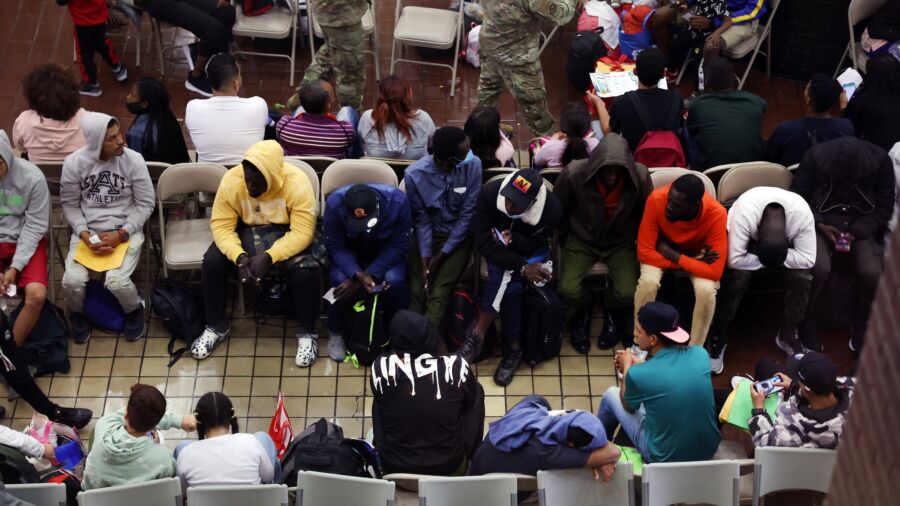New York City is now providing more shelter to non-citizens than to its own homeless resident population, according to the latest assessment from a city official.
At a Wednesday press conference, New York City Deputy Mayor For Health and Human Services Anne Williams-Isom said the city is currently sheltering more than 100,000 people, the majority of whom are illegal immigrants and other non-citizens who are seeking to stay in the United States for the long-term.
“With over 50,000 asylum seekers currently in our care at this point, we now have more people seeking U.S. asylum than longtime unhoused New Yorkers in our shelter system,” New York City Williams-Isom said.
Many of the non-citizens being sheltered in the city are people who illegally crossed the U.S. southern border but made asylum claims or otherwise requested legal status in the U.S. and are now awaiting a ruling in their immigration cases.
Since last year, Republican Texas Gov. Greg Abbott has been busing illegal immigrants away from his border state to other areas of the country; particularly Democratic districts like New York City that have designated themselves as immigration “sanctuary cities.” New York City has been one of the main receiving points for tens of thousands of these illegal immigrants and many have stayed in the city since their arrival.
Williams-Isom called the ratio of illegal immigrants to resident homeless people in the city’s shelter system “sobering.” She said New York City has taken in 81,200 illegal immigrants and asylum seekers since the Spring of 2022, including “2,500 new asylum seekers” in the past week.
“You see from today’s numbers that we have reached a tipping point,” she said. “We now have more asylum seekers in our care than longtime New Yorkers from when we first came in and who are in our existing [New York City Department of Homeless Services] system.
NYC Mayor’s Shelter Strategy
Williams-Isom said New York City has opened 176 new shelter sites, including 12 humanitarian relief sites since last spring, but indicated the city has virtually exhausted its capacity to shelter people.
“We will continue to do our part. I might say we’re doing more than our part,” she said on Thursday. “But this is a national humanitarian crisis and we need sustained and profound support from the federal government in the form of financial aid and in the form of a national coordination.”
Following a 1984 court decision known as the “Callahan consent decree,” New York City has had to provide shelter for virtually all homeless people who apply. Last month, New York City Mayor Eric Adams requested that a court suspend this “Right to Shelter” rule. New York City is also one of many locations throughout the U.S. that consider themselves “sanctuary cities,” meaning they do not cooperate with federal immigration authorities that might arrest or deport illegal immigrants.
Abbott has said his busing strategy has shone a spotlight on the hypocrisy of sanctuary cities that balk at the prospect of having to actually take, and share responsibility for, illegal immigrants.
In May, Adams began trying to relocate some illegal immigrants from New York City to neighboring areas of New York, with a commitment to cover the costs of their shelter, food, counseling, and other services for up to four months. Many of these neighboring communities have rejected the relocation efforts, even issuing emergency declarations to block Adams’ administration from busing illegal immigrants to their communities.
Earlier this month, the Adams administration filed a lawsuit against 30 New York counties, seeking a court order overriding any emergency orders blocking his efforts to move illegal immigrants to those neighboring communities.
Adams has also called on President Joe Biden’s administration to provide New York City with more federal funding for its shelter system. In a May 21 interview with CBS News, host Margaret Brennan noted the federal government has pledged about $30 million in assistance to deal with the influx, but Adams insisted his city’s shelter expenses would far exceed that level of federal support.
“We’re projected to spend close to $4.3 billion, if not more. This estimate was based on a number of migrants coming to the city, and those numbers have clearly increased,” Adams said. “When you look at the price tag, $30 million comes nowhere near what this city is paying for a national problem.”

